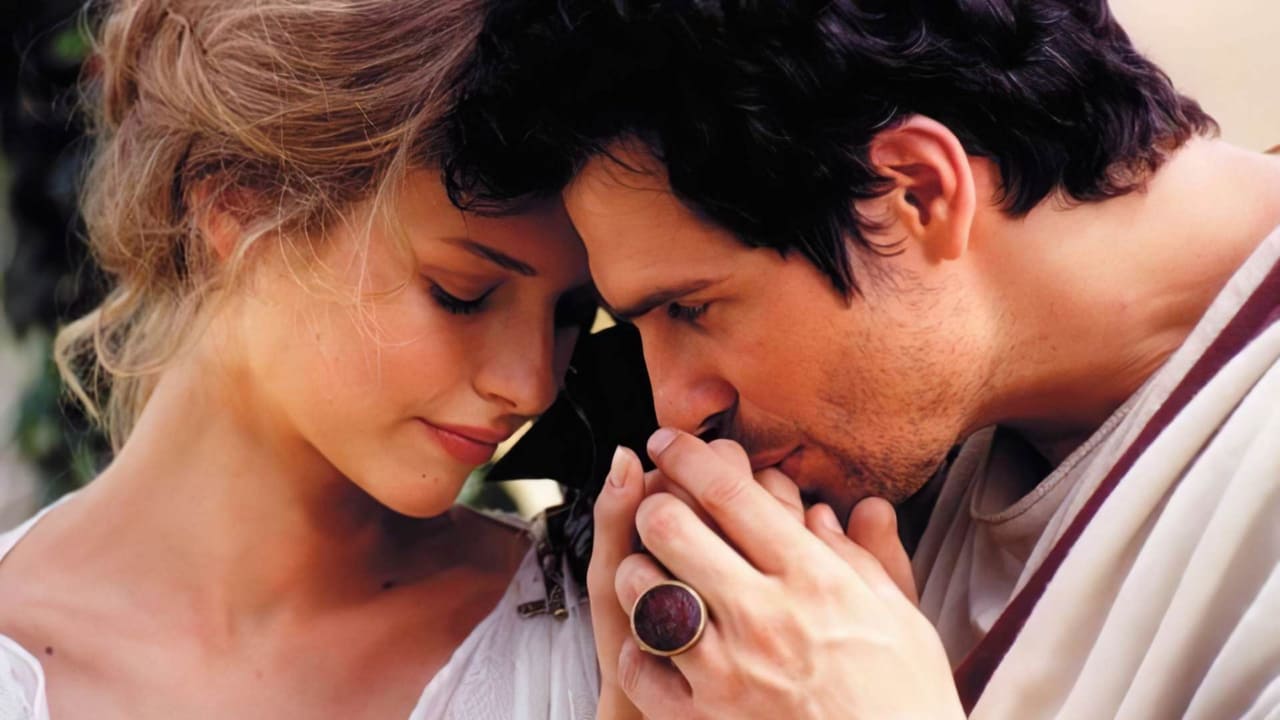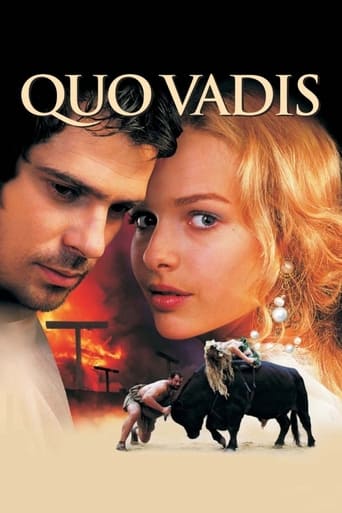

I have found great pleasure in reading the book and I must say that I really enjoyed watching the movie too. Great performance, great actors and especially a great sensibility. Unless the old movie I really felt like I was watching the 'book'. I liked most the performance of the actors that interpreted Petronius and Marcus Vinicius. Boguslaw Linda is an exceptional actor or at least in this movie his performance was perfect. The settings gave me the impression of reallied not fakes like most of the Hollywood 'masterpieces'. I felt like the movie was the 'sequel' of the book, no alterations, no personal interpretations. Jerzi Kawalerowicz is a great director and producer and his showed this in the high quality of this movie.
... View MoreWell acted,respecting the novel's plot and spirit, excellent costumes. IMO this is the best ecranisation of this Nobel prize novel,beating by far the 1951 classic.The only debatable part lasts a few seconds at the very end.
... View MoreHaving read several rather unfavorable reviews of the movie, I went to see it with quite low expectations. I was not disappointed: the movie was not a total loss, but left me with a sense of horrible loss of $18 million (the movie's overinflated budget). The movie's very long and it drags on mercilessly. The editing is the worst I have seen in a long time: the wonderful sets were completely underexposed by the shabby cinematography (or the film edit). Cinematography is very "narrow": it constantly focuses on the close-up action and the actors themselves, and with a complete lack of scenic shots and good panning, leaves the viewer with a sense of watching "I, Claudius" on a big screen. In fact, "Quo Vadis" would watch much better as a TV mini-series than as a big screen feature. The sound effects are underwhelming, the music uninspiring. And most visibly, the visual effects are sub-par, even for Polish cinema. The rubber doll of Glaucus on a burning cross was laughable and the lion scene was quite frankly unmoving. Same clip of a woman being tackled by a lion being repeated at least twice and the the lions sometimes looked like they were toying with the Christians. Where exactly did the $18 million go Mr. Kawalerowicz? There is a debate currently in Poland about "old masters" and their recent superproductions. While I believe that anyone has a right to film anything, I do think it's time to stop subsidizing "lifelong dreams" of the "old masters" and devote the money to younger directors with less egos and more original ideas.
... View MoreA film which many were looking forward to. Not surprisingly as it is the most expensive film in the history of the Polish film industry ($18 million). Unfortunately, it doesn't pay off. One wonders where all the money went. I watched the film with two friends, one an actor who is a good friend of many of the actors in the film. After ten minutes, he was shaking his head, stating with unbelief at the terrible acting of the lead player Pawel Delag (Vinicjusz). We wanted to like the film, but we felt we were watching a TV play and the film was only saved in moments by the formidable acting of Boguslaw Linda and Jerzsy Trela. I must, however, applaud the excellent lion scene in the arena. With this I don't have qualms - excellent effects - this only saves five minutes of an over long boring 180 minutes. Oh, and one more thing, at times I felt I was watching a soft porn movie - what a shame!! That fact in itself was a big "turn-off", and they have school children watching this. Very sad.
... View More